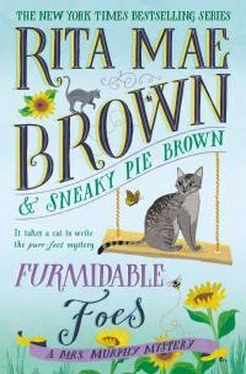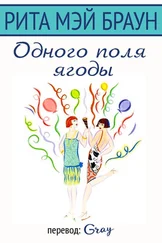“I don’t see any Hispanic people here.” Mags challenged them.
“Mags, Spanish-speaking people are usually Catholic.” Harry stated the obvious.
Reverend Jones, a little smile on his face, said, “We can hope they see the light and embrace the Lutheran faith.”
At that moment, Father Vargas appeared.
“Speak of the Devil.” The Reverend Jones roared with laughter, got out of his seat, and walked over to the young priest who had taken over at St. Mary’s after the elderly father finally retired.
Everyone laughed and the young, tall, thin priest threw up his hands in wonderment.
Reverend Jones motioned for Fair to squeeze a seat in for the good father. Then the pastor loaded a plate for Father Vargas as Pamela rose to fetch him something cool to drink, something perhaps with a hint of spirits. No one was looking really.
“You need fat on your bones. Come on.” Reverend Jones filled the fellow in on the discussion.
Everyone talked at once until finally Harry ordered them: “Let the poor man eat. We can all bless one another afterward.”
More laughter since “bless” has a variety of meanings in this part of the world.
“The grounds are beautiful.” Father Vargas complimented the group once his plate was empty.
“You know, Father Vargas, we’re trying to stay as faithful to 1787 as possible, but occasionally we stray in the name of beauty,” Susan said.
“Seventeen eighty-seven.” He thought a moment. “That’s the year the Constitutional Convention was convened in Philadelphia.”
More talk as Janice rose to select a dessert. Walking to the food tables, the heel to her gardening shoes, as she described them, broke. “Darn. I’ll never find another pair.”
Harry, behind her on the same mission, consoled her. “There’s no problem that a new lipstick can’t cure.”
Janice laughed. “If only that were true, I’d buy cartons.”
“It is. Imagine if you had a lipstick the color of the magenta peonies?”
“You know, you might have a point there.” She pointed to the cobbler, dropping some on Harry’s plate.
Walking back to the tables, Janice asked, “Did women wear lipstick in 1787?”
“Pamela will know.”
And Pamela did. “Not as we know it, but they crushed berries. People have been improving themselves since the earth was cooling.”
“Think magenta.” Harry cooed.
Janice, thinking that, said, “Don’t you wonder about the bones we buried? Planting those azaleas makes me think even more about her. She must have been uncommonly beautiful. The remnants of the silk were smashing even after being underground. I can’t imagine them in full color with those jewels and perhaps berries rubbed on her lips.”
“Magenta.” Harry teased her.
“Actually I was thinking about the necklace that few of us have ever seen but you and Reverend Jones.”
A pause followed this. Then Reverend Jones said, “It’s extraordinary.” He waited a moment. “I’ve been remiss. I haven’t attended to the necklace and earrings.”
“It’s not like you have nothing to do.” Harry tried to steer the conversation a bit away from the necklace.
“Well, I still say we should sell it and put the money in the church’s treasury.” Mags might have kept her mouth shut.
Reverend Jones, voice deep and mellow, amplified her position. “Yes, parishioners think that. Most believe the Virginia Museum of Fine Arts would be interested. Others think we might find a blood relative of that poor woman, which seems unlikely as we do not know who she was. All in all, it is an extraordinary situation. Until we have more information, we should protect it.”
6
May 26, 2019
Sunday
“Aren’t those pink and white dogwoods lining the driveway of the old hunt club smashing? I wish Farmington Hunt Club was still there. Although all things change, I guess.” Harry looked out the window as they drove on Garth Road east.
“Yes, they’re gorgeous. I think the work being done on the schoolhouses outside Crozet is impressive.” Fair, driving the Volvo station wagon, mentioned the old schools being rehabilitated.
“What a long haul that was to put the county commissioner’s feet to the fire.” Harry turned around as Pewter wanted to come up from the backseat. “No, if you come up, then the others will want to come up.”
“The dogs can stay in the back. I need to help drive.” With that, Pewter started to step onto the center console.
“I said, ‘No.’ ”
“Spoilsport. You don’t have to sit with these lowlife dogs.”
Mrs. Murphy upbraided Pewter. “Everything’s been fine until now.”
Tucker, curling her lip, snarled, “Shut up.”
Poor Pirate drooped his ears, being the youngest and very sensitive.
Pewter narrowed her eyes, hissed, then returned to the center console. Harry smacked her front paws, which forced no retreat but did stop her forward motion.
“Tazio Chappars testifying at an open county meeting along with the people she organized did the trick.” Harry mentioned a young, talented, mixed-race architect who had also presented plans and the cost. She had been impressively organized.
The schools, called the Colored Schools, a grammar school to eighth grade, and the identical, if slightly larger, building for ninth through twelfth, plus a third for equipment, deteriorated when it closed down in the seventies. The word “colored” had been started in 1911 to lump together children of tribal heritage, mostly Monacans and some Appomatti, with children of African blood. This sleight of hand by Walter Plecker, head of the Virginia census from 1912 until 1946, was one of the worst things ever done in Virginia in the early twentieth century.
The buildings—frame with wonderful floor-to-ceiling windows, narrow oak plank floors, and a potbellied stove in the middle of the room—served generations of children. Served they were, for they had good teachers, not one of them white, also by design. Those were bad times, but those children learned. Their teachers devoted their lives to the young.
Tazio, pushed into this by a lady who had passed now, gathered Harry, Susan, all their friends, and the husbands, too. History teaches us that if we are willing to actually embrace the truth and not the ideology du jour, things are more easily accomplished.
So finally the county released funds and Tazio, with her team, was breathing life into the buildings and our past, which would be visited by students throughout the county. Each class would have a day or two to learn firsthand about former times.
“Think we’ll ever know the truth about anything? Like Caesar’s death? Who was in on it? We know some, but don’t you think there were silent participants? Or what about the rebuilding of Paris under Napoleon II? Will we ever know what they found in those medieval streets and where the people really went?”
“Whoever is in power writes history. Somebody always has an ax to grind. Probably why I didn’t much like history in high school. A bunch of battles and dates,” Fair responded.
“M-m-m. Honey, you forgot to turn at the Beau Pre sign.”
“See, you fascinated me.” He reached over to squeeze her hand.
“Oh, bull. But don’t let that stop you.” She smiled at him. He drove down the quite steep hill to Ivy Creek, even steeper back in the eighteenth and nineteenth centuries. The road on which they drove, named after the Garths on the north side, housed the Holloways on the south. Both estates impressed, although Cloverfields, more restrained, heading toward high Georgian, paled before the splendor of Big Rawly, tons of money spent on it by Francisco Selisse. As his wife had studied in Paris at a convent school for well-born young girls, she being filthy rich from the Caribbean, the house looked like a marvelous French château. Reputed to be brutal, Maureen Selisse, later Holloway, reflected high aesthetic values.
Читать дальше












